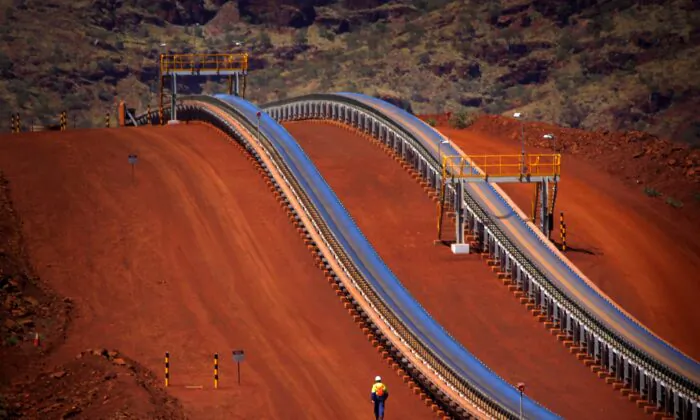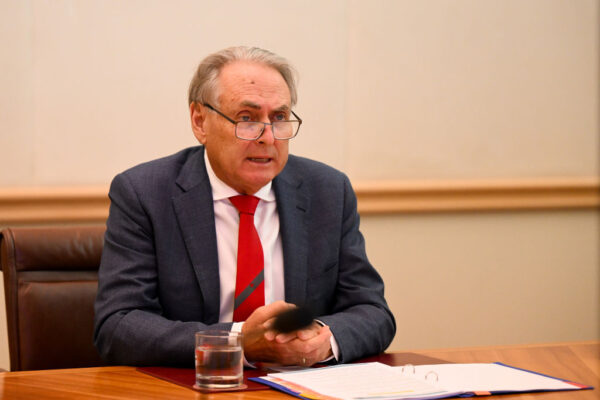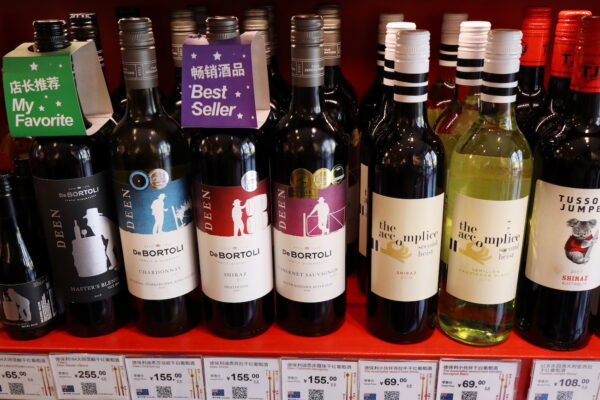
Chinese state-owned iron and steel company, Baowu Group, has indicated an interest in building a new green steel plant in Western Australia.
During talks with Australia’s Federal Trade Minister Don Farrell in Beijing on May 11, Baowu Group’s chairman Chen Dorong said Western Australia’s availability of clean energy, and ore made the state an ideal site for a new green facility.
Baowu Group is one of China’s biggest polluters, and it plans to reduce emissions by 30 percent by 2035 and be carbon neutral by 2050.
Chen told Farrell that the Chinese state-owned company wanted to decarbonise its operations but is also looking at West Africa, South America and Saudi Arabia as alternatives.
China is currently Western Australia’s largest iron ore market, accounting for 83 percent of exports traded during 2022. Baowu Group was one of the first Chinese companies to resume the purchase of Australian coal in 2023.
In 2022, Baowu produced 132 million tonnes of steel, accounting for about 13 percent of China’s total.
Chen told Farrell that Baowu Group—which is declared the “world’s largest steelmaker” by Chinese state-controlled media Xinhua—wanted to do more business with Australia and proposed a possible clean steel joint venture with Rio Tinto and BHP by potentially using “new energy resources like photovoltaic and natural gas.”
Despite trade tensions, Rio Tinto and Baowu Group formed a $2 billion joint venture in September 2022 to develop an iron ore project in the Pilbara, Western Australia, which has since secured government approvals.
The agreement between Rio Tinto and Baowu Group would see up to 126.5 million tonnes of iron ore sold at market value over approximately 13 years. Rio Tinto owns 54 percent of the deal, while Baowu owns 46 percent.
Trade Minister Firm on National Security
Farrell, who is currently in Beijing for a two-day diplomatic visit, said Chinese investments were “overwhelmingly” approved but said the federal government would block deals on national security grounds.
In response, Beijing said on May 11 that the communist regime was “willing to work” with Australia.
Beijing recently accused Australia of abusing national security grounds to block investments after Federal Treasurer Jim Chalmers intervened to prevent a Chinese company from lifting its stake in a Western Australian lithium miner. Chalmers intervened based on advice from the Foreign Investment Review Board (FIRB).
“If national security or national interests are involved, countries do make decisions to reject some—very few—investments. And, of course, we reserve the right to do that,” Farrell said.
 Australian Trade Minister Don Farrell speaks during a meeting via teleconference at Parliament House in Canberra, Australia, on Feb. 6, 2023. (Lukas Coch-Pool/Getty Images)
Australian Trade Minister Don Farrell speaks during a meeting via teleconference at Parliament House in Canberra, Australia, on Feb. 6, 2023. (Lukas Coch-Pool/Getty Images)
Farrell said he would also raise “other issues of importance to Australians” but did not specify the exact issue. Currently, Australian citizens Cheng Lei and Yang Hengjun are detained in China for alleged espionage.
Farrell is scheduled to meet his Chinese counterpart Wang Wentao on May 12 to discuss a way to end trade sanctions. In 2020, Beijing enacted sanctions against Australian wine, barley, lobster, and beef during the height of tensions between both countries.
“What I’d like to do over the next couple of days is continue that process of stabilising our relationship and work through a successful pathway for the resolution of all of our outstanding trade differences,” Farrell said on his arrival in Beijing on May 11.
“The issues didn’t occur overnight, and they’re not going to be resolved overnight. What I’d like to come back to Australia with is a pathway to resolving all of those outstanding issues. Face-to-face dialogue is the best way to get that progress.”
Farrell said that trade between Australia and China totalled $300 billion during the 2021–2022 financial year but added that “we can do more, and we can do better.”
Resumption of Trade Exports
Since the Albanese government took office last year, Australian exports of coal, cotton, and copper have resumed with Beijing.
Meanwhile, Beijing has agreed to review its tariffs on Australian barley over the next three to four months, and as a sign of goodwill, the Albanese government will temporarily suspend its sanctions complaint lodged with the World Trade Organisation (WTO).
Farrell will also meet with the head of the state-owned China Oil and Foodstuff Corporation, which is a major importer of Australian-grown sorghum, wheat, barley, and chickpeas. China Oil and Foodstuff Corporation imported approximately 30 percent of its wine from Australia prior to the trade sanctions, reported the Australian Financial Review (AFR).
 Bottles of Australian wine are seen at a store selling imported wine in Beijing, China, on Nov. 27, 2020. (Florence Lo/Reuters)
Bottles of Australian wine are seen at a store selling imported wine in Beijing, China, on Nov. 27, 2020. (Florence Lo/Reuters)
Farrell added that a strong trade relationship with Beijing was vital to ensuring peace in the Indo-Pacific.
“There’s no reason why we can’t progress our national security and our national interest but also continue our trading relationship, build on that almost $300 billion of trade, and stabilise our relationship with China,” Farrell said.
“Nothing’s going to do more to achieve peace in our region than strong trading relationships between Australia and China.”
Prime Minister Anthony Albanese told reporters in Sydney on May 12 that dialogue with China was welcome.
“Our major trading partner is important for jobs and for our economy,” Albanese said.
“And I have said that you don’t achieve anything by having no discussion.
“What we need is to develop understanding and dialogue … we’ll co-operate with China where we can, we will disagree where we must and will engage in our national interest.”
Farrell’s trip to China comes after Foreign Minister Penny Wong’s visit in December 2022.